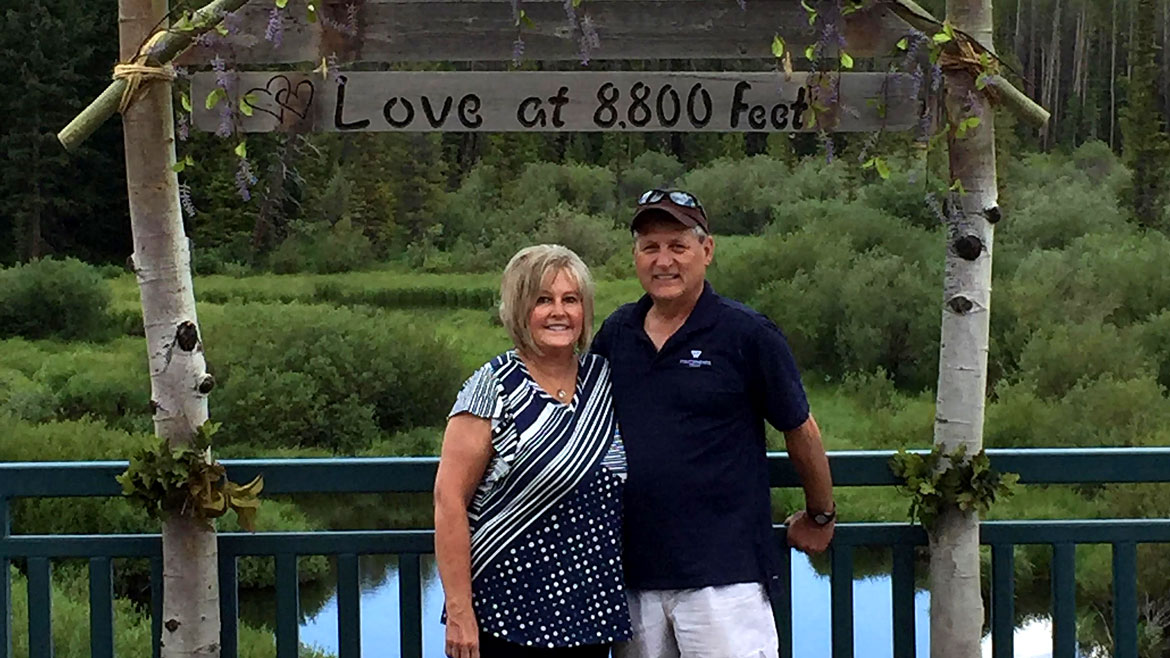
What Life is Like, 4 Years After Stroke
During the first and second years of my recovery after stroke, I went through a grieving process. In the third year, I felt like I was living in the past—or at least thinking a lot about the way life used to be.
I was consumed with trying to get things back to the way they used to be. I had a wonderful life, and with no time to prepare, I lost so much.
Focus on Moving Forward
But in the fourth year, something shifted. I don’t know how, or exactly when, but I started to focus on simply moving forward from today, every day. I am in a better place now than I have been for some time.
The Richards Family on Brittany’s wedding day: brother, Dustin, left, Brittany, Christine and dad, Loren.
The effects of my stroke created low self-esteem. I was worried about how people would react to my aphasia, and I knew my brain wasn’t functioning as it had before.
In trying to re-understand things I used to do without effort, I became more of an observer. For instance, it was hard for me to carry on a conversation. A friend would greet me: “Hi, Chris, how are you today?” I would answer: “Good.” That was it.
I couldn’t formulate how to end a conversation; I often just walked away. I knew that something was awkward, but I wasn’t sure what I was doing wrong.
Re-Learning How to Tell a Story
So I started paying more attention to how others told stories, and how they interacted with each other. Just as I had I taught my little first-graders over so many years, a story has a beginning, a middle and an end.
Now I am much more likely to initiate a conversation, and feel confident that there will be little, if any, awkward moments. I also feel that my brain is getting sharper and that my speech is getting better.
I think the reason is that I am teaching myself to act and sound more like others. I observe people, and see where my speech and conversation need to change to be more natural.
I Feel Better Now
My physical health is also much better than it has been for many years. I have wonderful doctors making sure my heart works correctly, and I feel better now than I have ever felt.
One of the things that has been most helpful to my recovery over the long term is continued inclusion by my family, friends and co-workers. The things we do now are not much different than what we did pre-stroke. Co-workers, especially, have shown me trust, confidence and caring.
Life After Stroke is Good
I am often asked to take a class or a group of students when the regular teacher is absent. I am given tasks and projects, and trusted to get them done without anyone worrying that I might not be able to understand the assignment.
Having patience is also helpful during recovery from stroke. My speech issues can sometimes make a 30-second sentence take several minutes, especially when I am tired.
Also, there are some things I do differently, or don’t do at all, since my stroke. I know this can be frustrating for my family—like having an inconsiderate roommate! If you don’t receive patience and understanding, these things can tear a family apart. But I do have that that support!
Path Toward Healing
Over the years since Christine Richards’ stroke in 2014, she and her family have used CaringBridge for health updates and support that Christine describes as “hugs and pats on the back.” Hoping to inspire other families who have been through stroke, the Richards family has reflected on its “new normal,” what it is like to live with aphasia, how families can show support and simply how to heal.
October 29 is World Stroke Day
World Stroke Day, annually observed on October 29, underscores the serious nature and high rates of stroke, raises awareness of the prevention and treatment of stroke, and highlights the importance of better care and support for survivors. The American Stroke Association recommends that you act F.A.S.T., at the first signs of stroke.To learn more about how to handle life after stroke, visit www.StrokeAssociation.org.
New to CaringBridge and Wondering What We Do?
CaringBridge is a nonprofit social network dedicated to helping family and friends communicate with and support loved ones during a health crisis through the use of free, personal websites. Know someone who could benefit from starting a CaringBridge site to keep loved ones informed and get the love, and support they need?